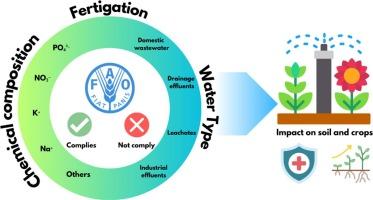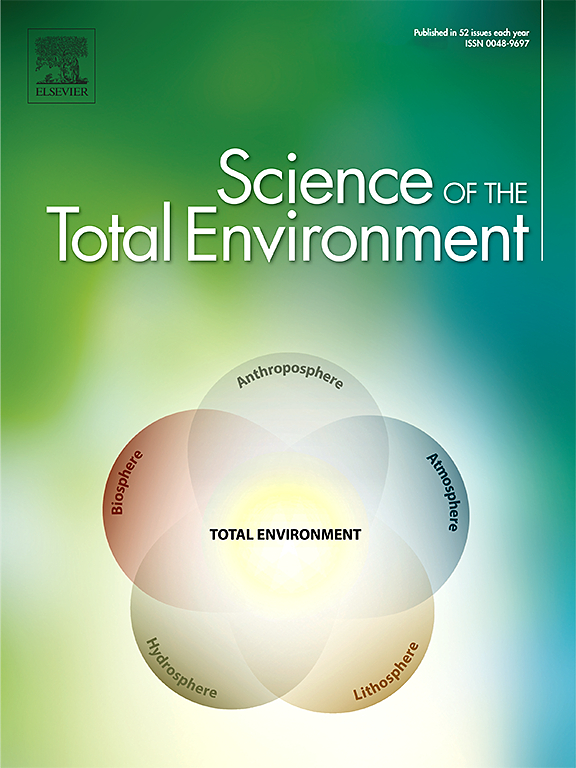施肥条件下废水化学成分对作物产量影响的系统综述
IF 8
1区 环境科学与生态学
Q1 ENVIRONMENTAL SCIENCES
引用次数: 0
摘要
全球对淡水资源的需求不断上升,对可持续农业做法构成重大挑战。本系统审查审查了污水中无机离子浓度对施肥后作物产量的影响,特别侧重于遵守粮农组织水质标准的建议。审查表明,硝酸盐(NO₃-)和磷酸盐(PO₄3 -)等关键营养物质基本上达到了规定的阈值,而钠(Na+)和钾(K+)经常超过允许的水平,威胁到作物生产力,特别是对盐分敏感的物种。此外,本研究还探讨了不同土壤类型和栽培环境下养分变异对作物生产性能的影响。进行了统计分析,以评估化学成分及其与农业产量的相关性。研究结果强调,迫切需要根据土壤和环境条件的具体特征调整施肥做法,以优化废水再利用的效益。本文章由计算机程序翻译,如有差异,请以英文原文为准。

Systematic review on the effects of wastewater chemical composition on crop yield under fertigation practices
The escalating global demand for freshwater resources poses significant challenges to sustainable agricultural practices. This systematic review examines the influence of inorganic ions' concentration in wastewater on crop yields under fertigation, with a particular focus on compliance with the recommendations of FAO water quality standards. The review reveals that key nutrients, such as nitrates (NO₃−) and phosphates (PO₄3−), largely meet established thresholds, while sodium (Na+) and potassium (K+) frequently exceed permissible levels, threatening crop productivity, especially in salinity-sensitive species. Additionally, the study explores the effects of nutrient variability on crop performance across different soil types and cultivation environments. Statistical analyses were performed to assess chemical composition and their correlation with agricultural yields. The findings emphasize the critical need to adapt fertigation practices to the specific characteristics of soil and environmental conditions to optimize the benefits of wastewater reuse.
求助全文
通过发布文献求助,成功后即可免费获取论文全文。
去求助
来源期刊

Science of the Total Environment
环境科学-环境科学
CiteScore
17.60
自引率
10.20%
发文量
8726
审稿时长
2.4 months
期刊介绍:
The Science of the Total Environment is an international journal dedicated to scientific research on the environment and its interaction with humanity. It covers a wide range of disciplines and seeks to publish innovative, hypothesis-driven, and impactful research that explores the entire environment, including the atmosphere, lithosphere, hydrosphere, biosphere, and anthroposphere.
The journal's updated Aims & Scope emphasizes the importance of interdisciplinary environmental research with broad impact. Priority is given to studies that advance fundamental understanding and explore the interconnectedness of multiple environmental spheres. Field studies are preferred, while laboratory experiments must demonstrate significant methodological advancements or mechanistic insights with direct relevance to the environment.
 求助内容:
求助内容: 应助结果提醒方式:
应助结果提醒方式:


